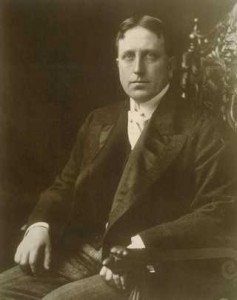
It’s nice to see that the Dutch haven’t cornered the market on ill-formed ideas relating to newspapers and the internet.
I don’t really want to get into the details of Richard Posner’s blog post. The Tobin/Coover synopsis is that if it were illegal to link to or quote newspapers web-content they’d be in better position to monetize their content.
What’s more interesting to me is the zombie-like arguments that just keep coming around, and around again as to how newspapers are absorbing all of the cost of “news gathering”, while successful aggrigators and most blogs reap the benefits as freeloaders on the newspaper writers back. Posner goes so far as to postulate that without intervention Reuters and the Associated Press (those masters of new media that they are) could be the “only professional, nongovernmental sources of news and opinion” left standing.
Which is just patently absurd.
The argument that “all news” originates with newspaper journalists, is as odd as “all news originated with television journalists”, or “magazine journalists”, or “radio journalists”, or even “journalists”. The fact is that original news is a rare thing and the lions share of any news media is generally built around re-purposing preexisting material (news conferences, press releases, other reportage).
Yes the majority of the new media space is dull and derivative – but so is the majority of every media space. A commenter at the Becker-Posner-Blog lamented that the death of newspapers meant the death of Woodward / Bernstein style expose – of course this is ridiculous.
Certainly most bloggers aren’t Carl Bernstein – but neither are most newspapermen. Nor do they need to be. The biggest news of the last few cycles in North America was likely the death of Michael Jackson. While it’s true most bloggers can’t afford to go to Florida to do original research – how many of the news affiliates in Florida are doing original research?
By the same token the new media space has shown itself more than capable of pursuing very detailed subtle investigation. It was strictly new media sources who first flagged that something was very wrong with Infinium Labs Inc. – two years before the Securities and Exchange Commission laid fraud charges. And those news media sources were from the enthusiast computer review press [H]ard OCP, and the comic strip Penny Arcade. While I’m certainly not comparing the scope of the Phantom debacle to Watergate – the only difference in the underlying role provided between [H]ard OCP and the Wall Street Journal was that [H]ard OCP didn’t have insurance and risked their own, personal, assets in the court case that followed.
The only real change in the new space is that most of the “professional” new media (those making their sole living and/or paying wages to their writers) are more akin to magazines – focusing on a specific subset of scope and topic – rather than the broad overview of newspapers, but that doesn’t mean that they’re not there. Quite the contrary – a network of “specialist” journalists are far more likely to ferret out news of interest than generalist newspaper writers. Some of it may be rough, or uneven, or incomplete, or wrong – but the new media space has shown it can respond with the swiftness (and resources) of the invisible hand of the market – delivering eyeballs (and effort) to the topics of the most interest.
If the new media transition has showed us anything it’s that the cloud is significantly better at minute oversight than traditional newspapers. So much so that the Guardian used crowdsourcing to tremendous effect in reviewing MP’s expense records in the recent UK scandal.
What all of the pro-newspaper arguments boil down to is that nothing in the new media space takes the exact place and format of the traditional newspaper. Which is absolutely true. However that in no way correlates with the loss of those functions.
In this case it’s important to remember that the medium is NOT the message.





